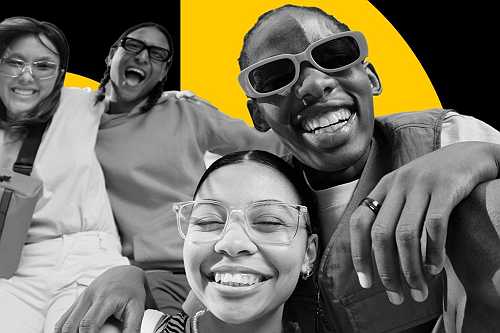Black culture is increasingly under-represented in media yet Gen Z and Millennials actively recognize its presence.
 Understanding Black Culture: A Cultural Journey for Gen Z and Millennials
Understanding Black Culture: A Cultural Journey for Gen Z and MillennialsIn today's world, Black culture is often overshadowed in media, education, and public discourse. However, this narrative is rapidly changing as Gen Z and Millennials—each generation growing up in increasingly diverse societies—begin to see their communities, cultures, and values come to the forefront of attention. A 2025 Urban One report titled *Urban One's Cultural ROI Study* highlights that over 80% of Gen Z and Millennials believe that Black culture is personally beneficial when it is well-represented in media, education, and public discourse.
This report underscores a critical shift: while Black Culture often goes unseen, its value as a cultural force is increasingly recognized. For Gen Z and Millennials, this significance is amplified by their focus on personal identity, social cohesion, and pride. They seek validation in their communities, recognizing that Black culture not only strengthens the fabric of their community but also fosters unity among diverse groups within it.
Black Culture: A Richer Vision than a Single Group
While Black Culture may seem to encompass just one group—those from African American or Hispanic origins—it actually represents an entire community of people who share common roots, traditions, and values. This diverse group is deeply connected through their history, culture, language, and beliefs. It includes contributions from communities like the Maya, Polynesian, Navajo, Native American, Asian, and many others. These groups are each unique but also part of a larger tapestry of Black identities.
Gen Zs often see Black Culture as more than just one black person; it’s a collective spirit that unites them through shared experiences, traditions, and stories. This unity is what they seek to honor—cultural pride, community bonds, and the value of belonging within their own communities.
Effective Representation: Stories That Matter
Urban One's study also emphasizes how Black Culture can be effectively portrayed in media, education, and public discourse. Media needs to be inclusive, respectful, and engaging, storytelling about the people and stories behind these cultural narratives in a way that resonates with Gen Zs and Millennials.
By doing so, media not only tells their stories but also validates the values they represent—cultural pride, community unity, resilience, and inclusion. Stories of Black Culture in media can inspire and uplift, reminding viewers that Black people are more than just individuals but part of a larger story of strength and connection.
Challenging Common Misconceptions
It’s important to address common misconceptions about Black Culture. While some may think Black Culture is only one group—many are diverse and come from different places with different stories. However, as the study notes, Black Culture is not just one identity but a vibrant tapestry of identities that together make up a larger whole.
This diversity in Black Culture means that each Black person has something to offer not just in terms of physical appearance or background but also in their cultural practices, traditions, and values. Highlighting these contributions can help Gen Zs feel included in the fabric of their community.
Cultural Identity and Pride
For Gen Zs, understanding their place within a larger network of Black identities is key to feeling connected to their communities. When Black Culture is well-represented, it reinforces pride in one’s community and helps people feel a sense of belonging—whether through shared history, traditions, or current challenges.
This pride can lead to a sense of social cohesion and unity, which are essential for emotional health and personal growth among Gen Zs. By celebrating their Black roots, they honor not just the past but also the present and future, fostering a sense of continuity in their communities.
Looking Ahead: The Future of Black Culture
As Urban One's study highlights, Black Culture’s value is likely to remain significant as media continues to shape public opinion. Projects like *Black Lives Matter* and others are working to weave Black identity into everyday stories, showing how cultural narratives can inspire action and change.
In the long term, presenting Black Culture in a way that is inclusive, respectful, and deeply relevant will not only honor its history but also empower communities to feel their own strength. It’s about celebrating diversity as a strength, not a deficit—just like how Black Culture brings pride and unity to individual communities.
Ultimately, understanding Black Culture through media is about creating stories of strength and connection that resonate with Gen Zs and Millennials. It’s about valuing the contributions of all Black people—whether they’re from a specific culture or origin—and finding ways to honor their cultural heritage in the present and future. By doing so, we can build a more inclusive, united, and connected world for generations to come.
------
Topic Live















